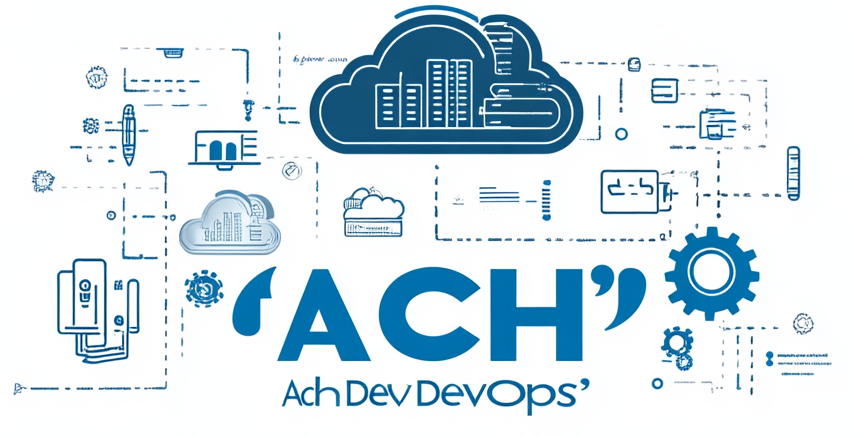Artificial Intelligence for IT Operations, commonly known as AIOps, is emerging as a transformative force in the realm of DevOps. By integrating artificial intelligence and machine learning into IT operations, AIOps offers the potential to enhance system management, streamline processes, and improve overall efficiency. This article explores the integration of AIOps into modern DevOps practices and discusses its potential to revolutionize system management.
What is AIOps?
AIOps refers to the use of AI and ML technologies to automate and optimize IT operations. It involves the collection and analysis of large volumes of data from various IT operations tools and systems, allowing for real-time insights, anomaly detection, predictive analytics, and automated remediation. AIOps platforms typically integrate with monitoring tools, logs, events, and network data to provide a comprehensive view of an organization’s IT environment.
Key Benefits of AIOps
- Enhanced Incident Management
- Real-Time Anomaly Detection: AIOps platforms can identify anomalies and potential issues in real-time, enabling faster detection and response. By continuously monitoring system performance and analyzing data patterns, AIOps can detect deviations from the norm that may indicate a problem.
- Automated Root Cause Analysis: When incidents occur, AIOps can automate the root cause analysis process, identifying the underlying issues more quickly than traditional methods. This reduces mean time to resolution (MTTR) and minimizes the impact of incidents.
- Predictive Analytics
- Forecasting and Proactive Management: AIOps can predict potential system failures and performance issues by analyzing historical data and identifying trends. This enables IT teams to proactively address issues before they escalate, improving system reliability and availability.
- Capacity Planning: By analyzing usage patterns and trends, AIOps can assist in capacity planning, ensuring that resources are allocated optimally to meet demand.
- Improved Decision Making
- Data-Driven Insights: AIOps provides actionable insights by correlating data from various sources and presenting it in a meaningful way. This helps IT teams make informed decisions, prioritize tasks, and allocate resources more effectively.
- Automated Recommendations: In addition to providing insights, AIOps platforms can offer automated recommendations for performance optimization, security improvements, and cost reductions.
- Increased Efficiency and Automation
- Automated Remediation: AIOps can automate routine tasks and remediate issues without human intervention. For example, it can automatically restart a failed service, scale resources, or apply patches based on predefined rules.
- Reduction of Noise: By filtering and correlating alerts, AIOps reduces the noise from false positives and irrelevant alerts. This allows IT teams to focus on critical issues that require attention.
Challenges and Considerations
- Data Quality and Integration
- Data Silos: AIOps relies on comprehensive and accurate data from various sources. Data silos and inconsistent data formats can hinder the effectiveness of AIOps solutions. Organizations need to ensure that data is properly integrated and standardized.
- Data Privacy and Security: The use of AI in IT operations raises concerns about data privacy and security. Organizations must implement strong security measures to protect sensitive data and comply with regulations.
- Complexity and Learning Curve
- Implementation Complexity: Deploying AIOps solutions can be complex, requiring integration with existing tools and systems. Additionally, the AI models used in AIOps require training and fine-tuning to deliver accurate results.
- Skill Gaps: The adoption of AIOps may require new skills and expertise in AI and data science, which could present a challenge for IT teams not familiar with these technologies.
- Cultural and Organizational Shift
- Change Management: Implementing AIOps often involves a cultural shift within IT teams. Embracing automation and data-driven decision-making requires a change in mindset and processes, which can be met with resistance.
The Future of AIOps in DevOps
As AIOps technologies continue to evolve, their integration into DevOps practices is likely to deepen. The adoption of AIOps can lead to a more proactive, efficient, and resilient IT environment. By automating routine tasks, providing real-time insights, and enabling predictive management, AIOps has the potential to be a game changer in the world of DevOps.
Looking ahead, we can expect further advancements in AI and machine learning algorithms, enhanced data integration capabilities, and more sophisticated automation features. These developments will drive the adoption of AIOps, making it an integral part of the DevOps toolkit.
Conclusion
The integration of AIOps into modern DevOps practices represents a significant shift in how IT operations are managed. By leveraging AI and ML, AIOps can transform incident management, improve decision-making, and enhance overall system efficiency. While there are challenges to consider, the benefits of AIOps make it a compelling addition to any DevOps strategy.
As organizations continue to seek ways to optimize their IT operations and deliver value faster, AIOps will play a crucial role in achieving these goals. The future of DevOps is increasingly intertwined with AI, making it an exciting area to watch and explore.
